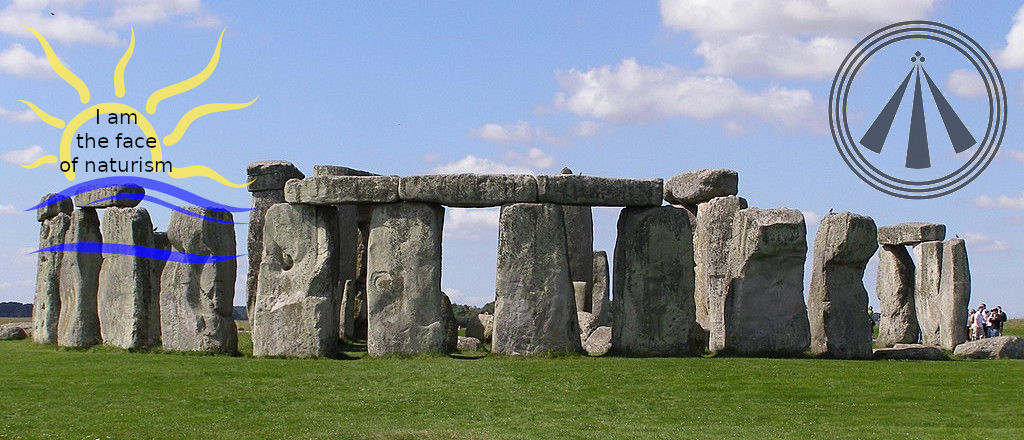
Paganism
What is paganism?
In many places you can hear and read what paganism is NOT about. That makes it very unclear to get an idea what paganism IS. On this page I attempt to describe what paganism is for me. To clarify it completely won't be possible. When you read on you can see that there is quite a lot to paganism. This is not an attempt to make paganism entirely clear. But I hope that this gives you a (better) image.
Old times.
Paganism exists since a very long time. Long before christianity became popular, people already had beleifs, religions and convictions. You can compare this to the beliefs of the old american indian tribes. They are very close to nature. From nature they often got signs and pointers of what was coming. No complicated things, but the coming of the rain, the early rise of the sun, the waning of the moon. All these are things that are recognisable, and also always return. By keeping track of these "happenings", patterns became clear, and to a number of these things festive events were connected. For instance at the summer and winter solstices, when the sun is at the highest or lowest point over the horizon. At a certain moment a number of people started honoring nature. To keep the environment that they lived in as a friend. Like with the indians, all kinds of happenings were attached to higher entities, which we now call gods. The earth was seen as the mother who provides all the good things. This way of life, seemingly primitive to us, has been sustained hundreds, if not thousands of years.
The present.
In this time many of the mysteries of nature have been explained by science. We know that the sun will come back at a certain moment by the turning of the earth. We know that the moon comes back by itself after becoming dark at new moon. However, science and technology cannot provide for everything. A human being, after all, is a spiritual being and does not want everything explained. For myself, therefore, I don't see christianity and the other large religions as valuable for me. In these religions everything is explained, everything is pointed out. When you do something wrong, an angry god stands there, waving his angry finger.
In paganism you take responsibility for your own deeds and doings. You reconnect to nature, to the basis in and on which you live.
Gods.
In the old times, people started to introduce gods into their lives, to have something to 'talk' to in nature. In that same way modernday pagans do this also. For many people it is much easier to talk to a name, the personification of a part of nature than to talk to an abstract natural aspect that comes by once in a while. There is not one way that pagans use gods. Some people only refer to a goddess (monotheism), there are people who approach a god and a goddess or even more than 2 (polytheism). Then there are people who follow the pantheistic idea, that they and everything around them is part of the great divine. And also you can run into people who do not think about anything like gods.
Paths.
Paganism is not a path in its own. In the old days the beliefs convictions and habits made their development in the places where people lived. The different areas and circumstances brought up different ways of life, and from there the multitude of paths in paganism arose. In this you can now find wicca, druidry, asatru, witchcrafs and shamanism, to name a few. There are also cross-paths or mixed paths between these different paths.
All these things together make it difficult for 'outsiders' to understand what is and is not pagan. The most important aspect in paganism for me at least is the unity in diversity.
Links.
- The Pagan Federation
- Pagans.org: all kinds of stuff
- Midnight in the Realm of the Goddess.
- The Sacred Spiral.
- Pagans unite.
- Pagan Culture.
- Pagan pagina nl (dutch link).
- Boudicca's Bard, an enormous amount of info in english, german and dutch
- Bardic Arts, by Maggi
- For more insight in the Occult, visit the Occultopedia site
- My own page with pagan texts.
Books I have read and can recommend:
- Wicca for the solitary practicioner (Scott Cunningham)
- Faery Wicca part 1 and 2 (Kisma K. Stepanich)
- Spiral Dance (Starhawk)
- Ancient ways -reclaiming pagan traditions (Pauline Campanelli)
- Dark Moon Mysteries (Timothy Roderick)